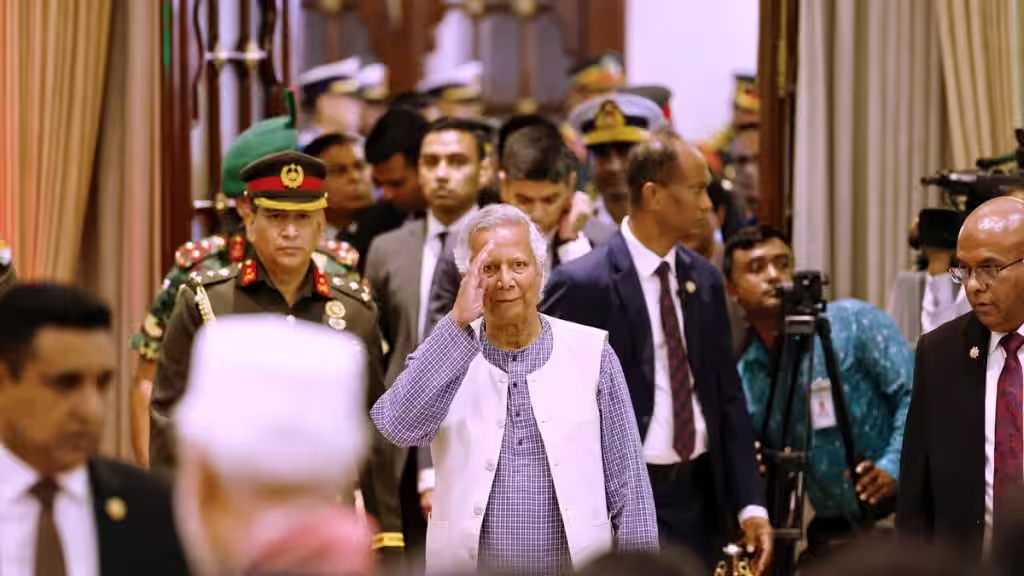In a historic and unexpected turn of events, Nobel Laureate Muhammad Yunus, globally revered for his pioneering work in microcredit, has been sworn in as the head of an interim government in Bangladesh. His appointment comes on the heels of a national upheaval that has seen widespread violence, mass protests, and the dramatic resignation of long-time Prime Minister Sheikh Hasina.
The 84-year-old economist took the oath of office late Thursday night, marking a new chapter in Bangladesh’s turbulent political landscape. Yunus’s arrival at Dhaka’s airport earlier in the day was met with a grand reception by top military officials and the leaders of the student movement that has been at the forefront of the recent protests.
The former Prime Minister’s departure earlier this week was the culmination of weeks of unrest that began with dissatisfaction over government recruitment practices and escalated into a broader revolt against Hasina’s increasingly authoritarian rule. The protests, which claimed the lives of over 300 people, including police and civilians, were a stark indication of the deep-seated frustration within the country.
Upon taking office, Yunus addressed the nation, lauding the bravery and determination of the students who led the movement. He called their actions a “second liberation” for Bangladesh and urged unity among the citizens, emphasizing the importance of healing and moving forward together as one nation.
The situation in Bangladesh remains volatile, with reports of ongoing violence targeting supporters of the ousted Awami League party, particularly against the Hindu minority, seen as allies of the former government. The newly appointed police chief, Mainul Islam, has called for officers to return to duty and promised investigations into the deaths that occurred during the protests.
The economic and social challenges awaiting Yunus are monumental. Under Hasina’s administration, state institutions were weakened, and the opposition was largely silenced through arrests and legal actions. Now, with the political landscape in disarray and the economy in distress, Yunus faces the daunting task of restoring stability and guiding the nation towards free and fair elections.
This interim government, chosen in discussions between the president, military leaders, and student representatives, represents a critical shift in the country’s governance. Yunus’s selection by the student leaders, who were adamant against a military-led interim government, underscores the profound desire for democratic reform and the prevention of future authoritarianism.
As Bangladesh navigates this critical period, the world watches closely, hopeful that Yunus’s leadership will pave the way for a peaceful transition and the establishment of a government that reflects the will of its people. The Nobel Laureate’s ability to bridge the gap between the old and the new, and between reform and stability, will be tested in the coming weeks and months.
In the words of Yunus, “We are one family. If we travel forward together, we can create a beautiful country.” His vision for a united and prosperous Bangladesh is now more crucial than ever.



